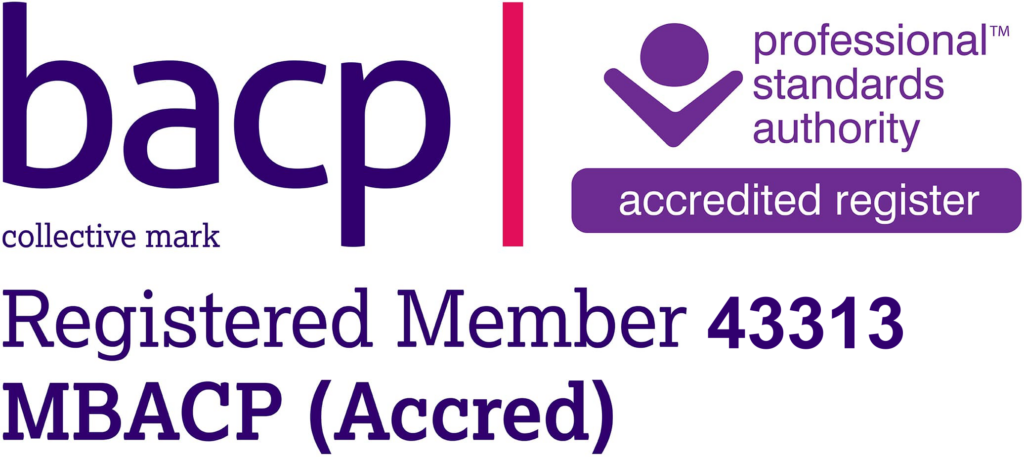I’m walking down Floral Street, no umbrella, under a dark March sky, and I meet my friend Dan. “How are you doing?” says Dan. I notice he’s looking a bit peaky. “Yes fine,” I say and it’s only a few moments of small talk before we part, without reluctance, both busy – and after all, I tell myself, I don’t know Dan very well, he’s more of an acquaintance than a real friend. And then, a few moments later, thank goodness, I’m into the dry of the Tube.
I said I was fine, but what did I really mean? Something polite and friendly on the surface, but basically non-committal. Would Dan have welcomed it if I told him in detail about my terrible morning and the washing machine which had broken down and how tired I was with a bit of a headache coming on?
Probably not.
But put me down in a counselling room, one where, for today, the roles are reversed and I’m the client, and you might get a rather different story.
“How are you doing?” asks my (imaginary) counsellor.
“I’m fine. I met Dan in the street today, which was nice. I probably should have talked to him more. He did look a bit rough. I hadn’t seen him for ages…”
What am I doing here, I wonder, wasting time having counselling? I should be giving Dan a call. And then there’s all that reading I need to do for my course on Thursday. And the washing. So much washing!
“You’re fine? You know, that sounded a bit automatic – probably what you said to Dan,” says my counsellor. I laugh, weakly. “So how do really feel? Take a bit of time and a few breaths and go into your body…that’s right. How are you really doing?”
“Oh I don’t know,” I say. “I suppose I actually feel all het up. I was supposed to do a whole morning of shopping, get everything done, and I barely managed any of it….”
“Het up. Is that stressed, or more irritable?”
“Both – stressed, irritable. Hmm.”(I take a deep breath). “Actually, it’s not just irritable. Actually, what I feel is angry.”
“Angry. Ok!”
“Yes, totally angry.”
My counsellor nods sagely. But then she says, “You know, there’s something about the way you’re sitting, leaning over to one side like that, that makes me think there’s something else apart from feeling angry. Is there some other kind of feeling, or even a sensation in your body, as well?”
“Nope, just angry. Oh well, OK, you’re right, there is something else actually. It’s at the edges of the anger. There’s this tension.”
“Tension where?”
“In my stomach.”
“Tension in your stomach. What happens if you take a breath and go into that tension in your stomach?”
“Like everything is tied up. Stuckness. The same old stuckness, like I can do nothing right.” (I sit silently for a few moments. I’m getting in to this.).”And then there’s something else too.”
“Another feeling under the stuckness?”
“More of an image. Someone is looking at a photograph.”
“Yes?”
“Yes. I’m looking at a photograph of three years ago and now I don’t feel angry at all. I feel scared. There’s a line of music in my head. Da, da da, dah. Scared and just hopeless…”
And so we go on.
The art of focusing
This process of exploring what’s really going on and moving deeper through feelings, thoughts, sensations and images in the body, is called focusing.
As you’ve probably noticed it has nothing to do with being more focused, or of honing in and gearing up to get a task done. None of those go-getting ideas are happening here.
Focusing is actually more like letting go, but with the courage to go down deeply into what’s really there. It’s a way of moving from our rehearsed response (“I feel angry”) into a discovery of what else we think, feel or see (“scared and hopeless”).
It’s a way of travelling beyond pure thoughts into the ‘knowing’ of our body, which after all is where our nervous system is.
And it’s a powerful way of moving deeper in your therapeutic ‘process’.
Why is the focusing process important?
Back in the 1950s, Eugene Gendlin, philosopher and psychotherapist, spent 15 years finding out just what made psychotherapy successful for some people and unsuccessful for others. Gendlin’s great discovery was that those people who benefited most from therapy had the ability to sense vague, still unformed feelings in their body-mind and to put this sensing (which he named the ‘felt sense’) into words.
Although attending to subtle and sometimes vague internal bodily awareness may seem at first to be pointless, in fact it holds a key. It means getting in touch with what is not yet fully known and bringing it into the light of consciousness. Once the unknown takes centre-stage in our consciousness and becomes known and felt, a person’s understanding of themselves deepens and they move further towards healing.
How focusing works in therapy
Sometimes clients are perplexed when the counsellor asks them, ‘So what is it that you are feeling?” “Aren’t you listening?” they wonder. “I just told you.”
In daily life we generally sum up our feelings as specifics, but this can reduce their complexity and prevent us getting to the more detailed or sprawling truth of what is really going on inside us. Shorthand can be useful of course, as in my meeting with Dan. It can make things simpler. But it can also gloss over important aspects of what is really happening for us.
In counselling, where the time is just for you, it often helps not to just say what’s obvious, but to explore further. Why? That’s the magic. Through focusing you attend to what is, go deeper, recognise what’s there, say it aloud and have it affirmed by the counsellor, all of which takes you further into what you feel and who you really are and either today or one day soon, it helps to make the difficult things change.
As Gendlin noticed, the new awareness which leads to change, is often accompanied by signs. These signs might be a sudden sense of opening or release in the body, or a sigh. Gendlin termed these moments of change or new awareness or understanding, a ‘felt shift’.
Can anyone do focusing?
People vary widely in their ability to sense into the body. Some of us are ‘natural focusers’, while for others the whole idea of sensing into the body seems weird or foreign. If you’ve been through a great deal of pain, then tuning in to your body, where your feelings are whizzing through your nervous system, is not going to be something you naturally want to do. You may even have become dissociated from your body, perhaps with deep fears of what you may find there.
Or focusing may just be a completely new idea for you.
In psychotherapy, an astute counsellor should be able to support you, both in discovering what the feelings, sensations, images and so on in your body really are, and in dipping in and out of them in a way which isn’t too challenging for you.
How to use focusing in your life
You can focus wherever you are right now and it will be useful. There doesn’t need to be any particular agenda going on, just a simple inquisitiveness about what is really going on for you. But as you get more experienced you can use the focusing process to explore particular questions which are perplexing you.
These could be questions about your direction in life, art and creativity, or how to resolve an emotional dilemma. Focusing has also been combined with conflict resolution, addiction counselling and 12-step programmes, yoga, art therapy and even business.
Focusing can be done effectively outside a therapy session, with a partner, as often as you want, much in the same way people practice mindfulness, to de-stress and enhance your everyday awareness of yourself.
If you want to find out more you could go on a course. I’ve been on one with this guy, and it was great. Or there are other focusing courses here and here.



